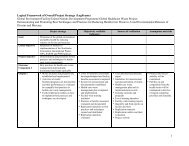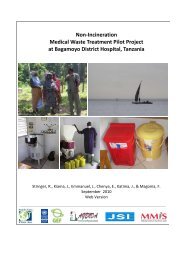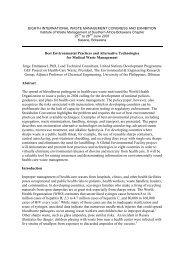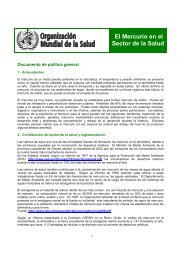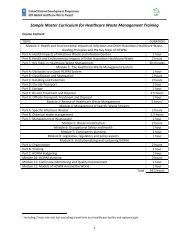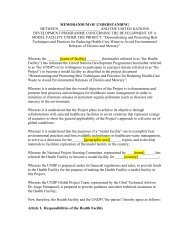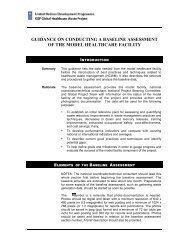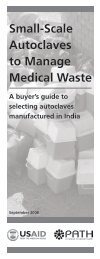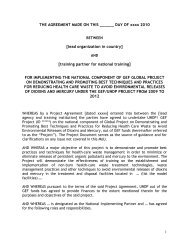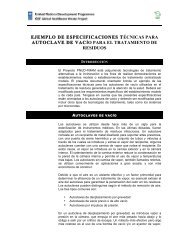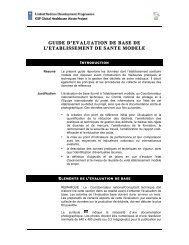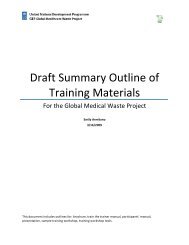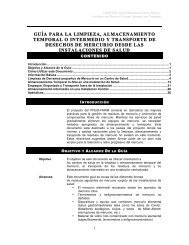Latvia
Latvia
Latvia
Create successful ePaper yourself
Turn your PDF publications into a flip-book with our unique Google optimized e-Paper software.
Health systems in transition<br />
<strong>Latvia</strong><br />
urban areas compared to LVL 22.19 in rural areas; and in the case of expenses<br />
for outpatient care it was LVL 14.38 in urban and LVL 6.61 in rural areas<br />
(Section 3.4 Revenue collection/sources of funds, Subsection Out-of-pocket<br />
payments). Lower spending on health care in rural areas tends to be associated<br />
both with lower incomes and with reduced access to services due to lack of<br />
availability.<br />
Poor access to health care services delays diagnosis of illnesses, resulting in<br />
complications and higher treatment expenses. The survey “<strong>Latvia</strong>n population<br />
income level and health care access” has shown that low income levels are<br />
associated with higher hospitalization rates, and therefore higher treatment costs<br />
than timely outpatient diagnosis and treatment (Karaskevica 2003).<br />
Health challenges for people with disabilities<br />
<strong>Latvia</strong>n public organizations struggle for the rights of disabled people with<br />
regard to social and environmental accessibility. The association “Apeirons”<br />
focuses on different problems faced by disabled people, organizes activities,<br />
takes part in the education of society in general and submits proposals to<br />
decision-makers.<br />
At the time of writing in <strong>Latvia</strong> there are no effective measures for reducing<br />
disability, due to insufficient funding for health care, for reimbursed drugs and<br />
for medical and social rehabilitation. While there have been some improvements,<br />
limited progress has been made to date.<br />
In June 2005 the Government adopted a document entitled “Basic statements<br />
for a policy to reduce disability and its consequences”, developed by the Ministry<br />
of Welfare. The main emphasis is on prevention of disability and promotion<br />
of a well-equipped, stable and friendly environment in order to favour the<br />
integration of disabled people into society. This includes the basic principles<br />
of disability prevention and social protection policy, along with key aims and<br />
priorities for the next 10 years.<br />
Participants in the Health Survey of the Population of <strong>Latvia</strong> 2003 were<br />
asked about long-term limitations to activity, lasting more than 6 months.<br />
The most common health problems causing long-term limitations to activity<br />
included musculoskeletal illnesses (34% of respondents), impaired eyesight<br />
(33.2%) and illnesses of the heart, blood vessels and lungs (31.3%). In addition,<br />
women mentioned illnesses of the nervous system (Central Statistical Bureau<br />
of <strong>Latvia</strong> 2004).<br />
24



